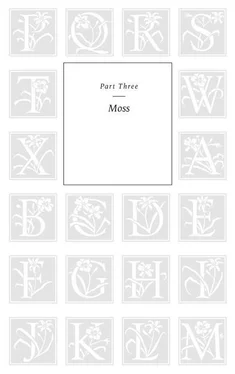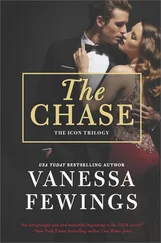Vanessa Diffenbaugh - The Language of Flowers
Здесь есть возможность читать онлайн «Vanessa Diffenbaugh - The Language of Flowers» весь текст электронной книги совершенно бесплатно (целиком полную версию без сокращений). В некоторых случаях можно слушать аудио, скачать через торрент в формате fb2 и присутствует краткое содержание. Жанр: Старинная литература, на английском языке. Описание произведения, (предисловие) а так же отзывы посетителей доступны на портале библиотеки ЛибКат.
- Название:The Language of Flowers
- Автор:
- Жанр:
- Год:неизвестен
- ISBN:нет данных
- Рейтинг книги:4 / 5. Голосов: 1
-
Избранное:Добавить в избранное
- Отзывы:
-
Ваша оценка:
- 80
- 1
- 2
- 3
- 4
- 5
The Language of Flowers: краткое содержание, описание и аннотация
Предлагаем к чтению аннотацию, описание, краткое содержание или предисловие (зависит от того, что написал сам автор книги «The Language of Flowers»). Если вы не нашли необходимую информацию о книге — напишите в комментариях, мы постараемся отыскать её.
The Language of Flowers — читать онлайн бесплатно полную книгу (весь текст) целиком
Ниже представлен текст книги, разбитый по страницам. Система сохранения места последней прочитанной страницы, позволяет с удобством читать онлайн бесплатно книгу «The Language of Flowers», без необходимости каждый раз заново искать на чём Вы остановились. Поставьте закладку, и сможете в любой момент перейти на страницу, на которой закончили чтение.
Интервал:
Закладка:
“So, what else is there?” I asked, my mouth full.
He paused, and then looked into my eyes.
“Where’ve you been for the past eight years?”
His question stunned me.
I stopped chewing and tried to swallow, but I’d put too much in my mouth. I spit a brown ball onto a white napkin and looked up.
All at once, I saw it. The realization was as shocking for its obviousness as for the fact that we had met again; I couldn’t believe I hadn’t recognized him instantly. The boy he had been lurked inside the man he had become, his eyes still deep and afraid, his body, filled out now, still curved in at the shoulders, protective. I flashed on the first time I’d ever seen him, a lanky teenager leaning against the back of a pickup truck, tossing roses.
“Grant.”
He nodded.
My instinct was to run. I’d spent so many years trying not to think about what I’d done, trying not to remember all that I’d lost. But as much as I wanted to flee, my desire to know what had become of Elizabeth, of the grapes, was stronger.
I covered my face with my hands. They smelled of sugar. In the space between my fingers I whispered my question, not at all sure he would answer: “Elizabeth?”
He was silent. I peered at him through lines of flesh. He didn’t look angry, as I’d expected, but tormented. He pulled at a patch of hair above his ear, the skin stretching away from his scalp. “I don’t know,” he said. “I haven’t seen her since—”
He stopped, looking out the window and then at me. I dropped my hands from my face, searching for his anger. Still, he looked only distressed. The silence was thick between us.
“I don’t know why you asked me here,” I said finally. “I don’t know why you’d want to see me, after everything that happened.”
Grant exhaled, the tension in his eyebrows releasing. “I was afraid you wouldn’t want to see me. ”
He licked a finger. The fluorescent light illuminated his eyes and reflected off the stubble on his chin. I was unaccustomed to men in general, having spent my adolescence in all-female group homes with only an occasional male therapist or teacher, and I couldn’t remember having ever been in such proximity to a man who was both young and handsome. Grant was so different from everything I was used to—from the size of his hands, heavy on the table, to the low, quiet voice that echoed into the silence between us.
“Your mother taught you?” I asked, gesturing to the scattered thistle.
He nodded. “But she died seven years ago. Your rhododendron was the first message-laden flower I’ve received since. I was surprised I hadn’t forgotten the definition.”
“I’m sorry,” I said. “About your mother.” My words didn’t sound heartfelt, but Grant didn’t appear to notice. He shrugged.
“Elizabeth taught you?” he asked.
I nodded. “She taught me what she knew,” I said, “but she didn’t know everything.”
“What do you mean?”
“ ‘The language of flowers is nonnegotiable, Victoria,’ ” I said, my voice a stern imitation of Elizabeth’s. “And today, in the library, I learned there are three contradictory definitions of the almond blossom.”
“Indiscretion.”
“Yes. And no.” I told Grant that white poplar wasn’t listed in my dictionary, and about my trip to the library and the sighting of the yellow rose.
“Jealousy,” Grant said, when I described the small illustration on the cover of the book.
“Exactly what it said,” I told him. “But not what I learned.” I finished the last donut, licked my fingers, and retrieved my worn dictionary from my backpack. I opened to the R’s and scanned the page for rose, yellow . I pointed.
“Infidelity.” His eyes widened. “Whoa.”
“Changes everything, right?”
“Yes,” he said. “Changes everything.”
He reached into his backpack and pulled out a book with a red cloth cover and stem-green endpapers. He turned to the page with yellow rose and set the dictionaries side by side. Jealousy, infidelity . This simple discrepancy, and the ways in which the yellow rose had altered both our lives, hung between us. Grant might have known the details, but I didn’t, and I didn’t ask. Being with him was enough; I had no desire to further uncover the past.
It didn’t seem like Grant wanted to dwell on the past, either. He closed the empty donut box. “You hungry?”
I was always hungry. But even more, I wasn’t ready to say goodbye. Grant wasn’t angry; being with him felt like being forgiven. I wanted to soak it up, take it with me, face the next day a little less haunted, a little less hateful.
I took a breath. “Starving.”
“Me, too.” He closed both dictionaries and slid mine across the table toward my backpack. “Let’s get dinner and compare. It’s the only way.”
Grant and I decided to eat dinner at Mary’s Diner, because it stayed open all night. We had hundreds of pages of flowers to compare, and for every discrepancy, we debated the better definition. We agreed that the loser would cross the old definition out of their dictionary and write in the new one.
We got stuck on the very first flower. Grant’s dictionary defined acacia as friendship , mine as secret love .
“Secret love,” I said. “Next.”
“Next? Just like that? You didn’t make much of a case.”
“It’s thorny and pod-bearing. Just the sway of the tree makes you think of shifty-eyed men in convenience stores, untrustworthy.”
“And how is untrustworthy related to secret love ?” he asked.
“How is it not?” I shot back.
Grant appeared unsure how to respond, so he chose another approach. “Acacia. Subfamily: Mimosoideae. Family: Fabaceae. Legumes. They provide sustenance, energy, and satisfaction to the human body. A good friend provides the same.”
“Blah,” I said. “Five petals. So small they’re almost hidden by a large stamen. Hidden,” I repeated. “Secret. Stamen: love.” My face flushed as I said this, but I didn’t turn away. Grant didn’t, either.
“Yours,” he said finally, reaching for the black permanent marker on the table between us.
We continued this way hour after hour, eating and debating. Grant was the only person I had ever met who could match me bite for bite, and, like me, he seemed to never grow full. By sunrise we had ordered and eaten three meals apiece and were only halfway through the C’s.
Grant surrendered a columbine defeat and snapped his dictionary shut. I hadn’t let him win, not once. “I guess I’m not going to the market today,” he said, looking at me with a guilty expression.
I looked at my watch. Six a.m. Renata would already be there, throwing a surprised glance at Grant’s empty stall. I shrugged. “November’s slow, Tuesday’s slow. Take a day off.”
“And do what?” Grant asked.
“How should I know?” I was suddenly tired, ready to be alone.
I stood, stretched, and put my dictionary in my backpack. Sliding the check across the table toward Grant, I walked out of the restaurant without saying goodbye.

1 .
Like Elizabeth, Grant was hard to forget. It was more than the intersection of our pasts, more than the drawing of the white poplar, which, in its obscurity, had led me to the truth about the language of flowers. It was something about Grant specifically, the seriousness with which he regarded the flowers, or the tone of his voice when he argued, simultaneously pleading and forceful. He’d shrugged his shoulders when I expressed sympathy at the death of his mother, and this, too, I found intriguing. His past—with the exception of the moments I’d glimpsed as a child—was a mystery to me. Group-home girls divulge their pasts relentlessly, and on the rare occasion I’d met someone unwilling to expose the details of her childhood, it was a relief. With Grant, I felt different. After only one night, I wanted to know more.
Читать дальшеИнтервал:
Закладка:
Похожие книги на «The Language of Flowers»
Представляем Вашему вниманию похожие книги на «The Language of Flowers» списком для выбора. Мы отобрали схожую по названию и смыслу литературу в надежде предоставить читателям больше вариантов отыскать новые, интересные, ещё непрочитанные произведения.
Обсуждение, отзывы о книге «The Language of Flowers» и просто собственные мнения читателей. Оставьте ваши комментарии, напишите, что Вы думаете о произведении, его смысле или главных героях. Укажите что конкретно понравилось, а что нет, и почему Вы так считаете.












